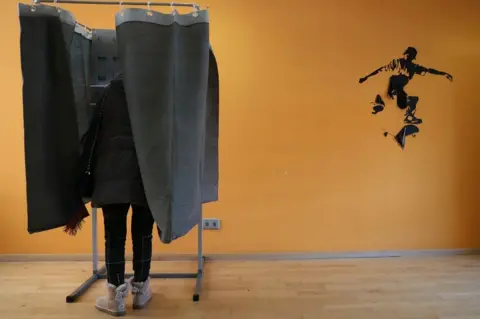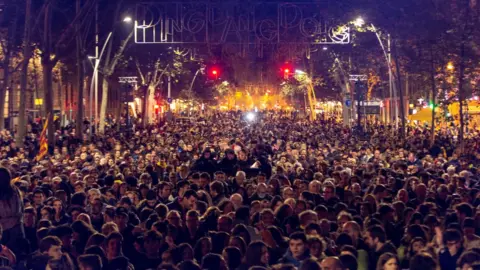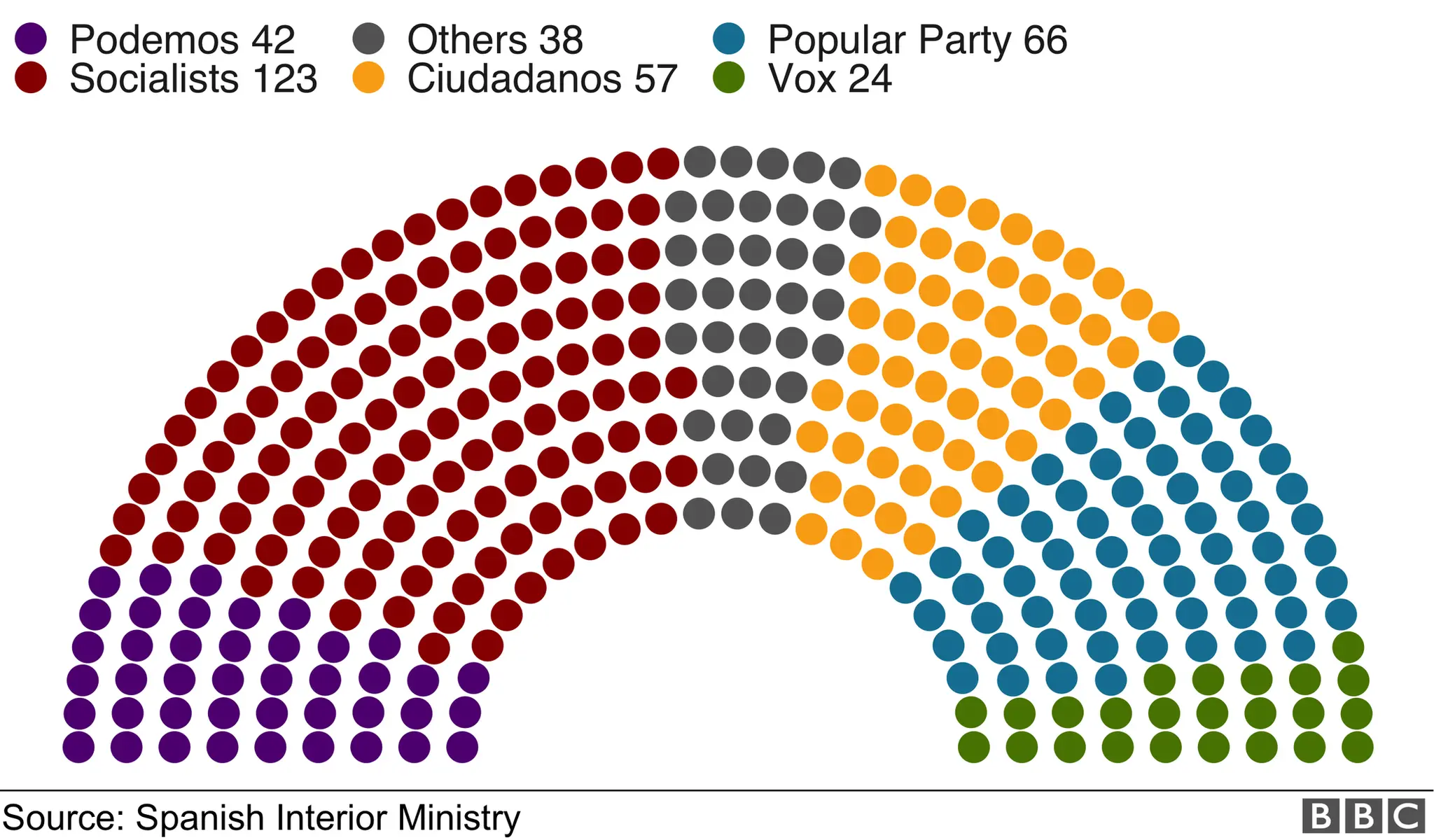Spanish election: Polls close in fourth vote in four years
 Reuters
ReutersVoters in Spain returned to the polls for the fourth general election in as many years.
In the last election in April, the governing Socialist Party won the most seats but fell short of a majority and was unable to form a coalition.
Spain has not had a stable government since 2015.
Polls closed at 20:00 local time (19:00 GMT), but the election was overshadowed by unrest in Catalonia and the rise of the far-right Vox party.
Results are expected on Sunday evening.
After April's vote, Socialist Prime Minister Pedro Sánchez entered coalition talks with the leftist Podemos party, but talks collapsed - causing them to miss a September deadline to form a new government.
At a closing rally on Friday, Mr Sánchez had told supporters: "There are only two options: either vote for the Socialists so that we have a government, or vote for any other party to block Spain from getting a progressive government."
 AFP
AFP EPA
EPAMr Sanchez is thought to be at an advantage given his current position as caretaker leader, despite having never won a parliamentary majority.
But the latest opinion polls before voting began showed none of the parties winning a majority.
Instead, they showed Socialist Party (PSOE) in the lead again, but with fewer votes than in April's election, and the conservative People's Party (PP) and Vox making gains.
The election comes less than a month after Spain's Supreme Court handed out lengthy jail sentences to nine Catalan independence leaders, over their role in organising an outlawed referendum in 2017.
The move triggered protests and violence on the streets of Barcelona and other cities in Catalonia.
The Catalan crisis dominated the election campaign, with parties on the right - Vox, the PP and the centre-right Ciudadanos - taking a hardline anti-separatist stance.
Support for Vox surged in the last election, with the party winning 24 seats in parliament with more than 10% of the vote. Meanwhile, the PP suffered its worst-ever general election performance.

Who won seats in April?

